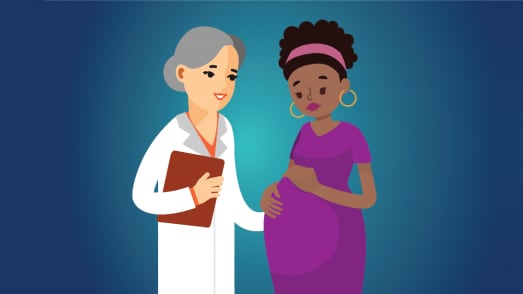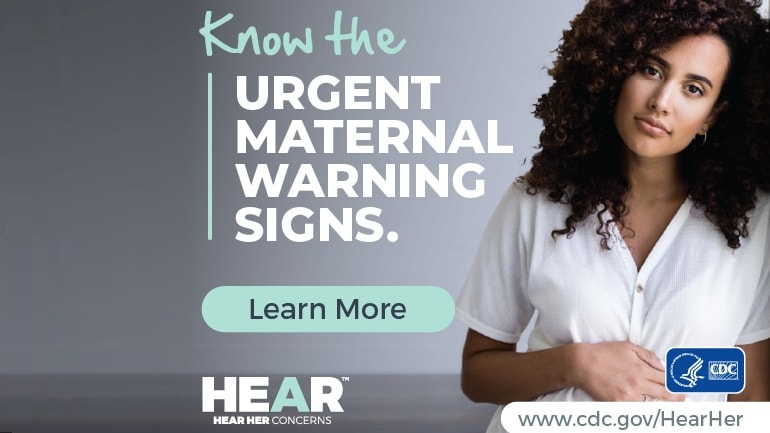At a glance
Depression is a common and serious illness, affecting 1 out of 10 women aged 18-44 years. Learn about depression among women and CDC activities to address this important health topic.
Depression among women
Depression during and after pregnancy can result in negative outcomes for pregnant and postpartum women and their babies. Professional and clinical organizations recommend that all adults, including pregnant and postpartum women, be screened for depression.
However, a CDC study shows that health care providers are missing opportunities to ask pregnant and postpartum women about depression. About 1 in 5 pregnant women were not asked about symptoms of depression during a prenatal visit. About 1 in 8 women were not asked during a postpartum visit.
CDC activities
CDC's Division of Reproductive Health (DRH) works to improve the mental health of women by collaborating with professional organizations.
Collaboration to support obstetrician-gynecologists

DRH helped American College of Obstetricians and Gynecologists and other professional organizations to develop a Perinatal Mental Health Toolkit. This toolkit is for health care providers treating women during and after pregnancy (e.g., obstetrician-gynecologists).
The toolkit summarizes common mood and anxiety disorders. It also provides guidance for women's health care providers to discuss mental health with patients. Additionally, it includes recommendations for screening frequency and administration, and educational resources for patients, families, and providers. This collaboration also led to the development of trainings and webinars on the treatment of mental health conditions in women.
Partnership to support pediatric providers
To improve the integration of mental health care for postpartum women and parents or caregivers in pediatric care settings, DRH collaborated with the American Academy of Pediatrics. Videos, conversation starters, and job aids are available to help guide parents and providers through conversations related to mental health.
Working together to support mental health providers
DRH also supported the American Psychiatric Association with efforts to improve care for mental health and substance use conditions. Mental health providers and pregnant and postpartum women shared experiences, barriers, and needs related to mental health care. Findings helped guide the development of Perinatal Mental Health Toolkit for patient-centered mental health care for pregnant and postpartum women.
Hear Her®
The Hear Her campaign supports CDC's efforts to prevent pregnancy-related deaths. This campaign shares potentially life-saving messages about urgent warning signs, including ones related to mental health conditions.

Research activities
DRH funded a study to improve, evaluate, and deliver a program to address depression during and after pregnancy. This randomized control trial was conducted by the University of Massachusetts at Worcester. The control group was enhanced usual care through access to the Massachusetts Child Psychiatry Access Project (MCPAP) for Moms. The intervention group, Program in Support of Moms (PRISM), was designed to help practices address depression during and after pregnancy. PRISM sought to ensure that women with depression during and after pregnancy receive the best treatment.
Additionally, DRH analyzes data to provide national and state-level surveillance about the prevalence of and risk factors for depression. Other topics for analysis include related health conditions, pregnancy outcomes, and diagnosis and treatment of depression. DRH also assists states and organizations to perform similar activities and to develop strategies for addressing mental health conditions among women.
